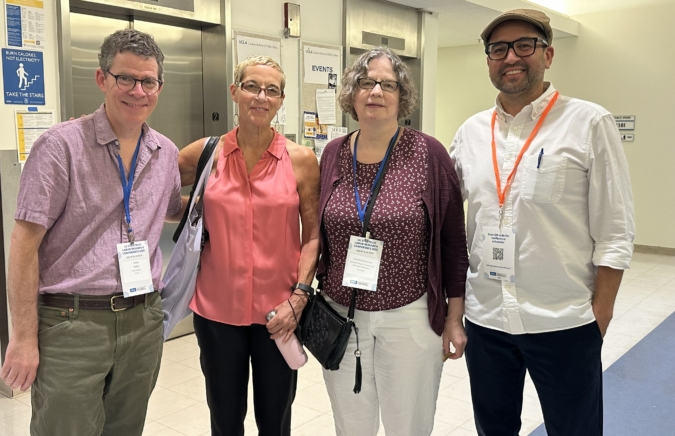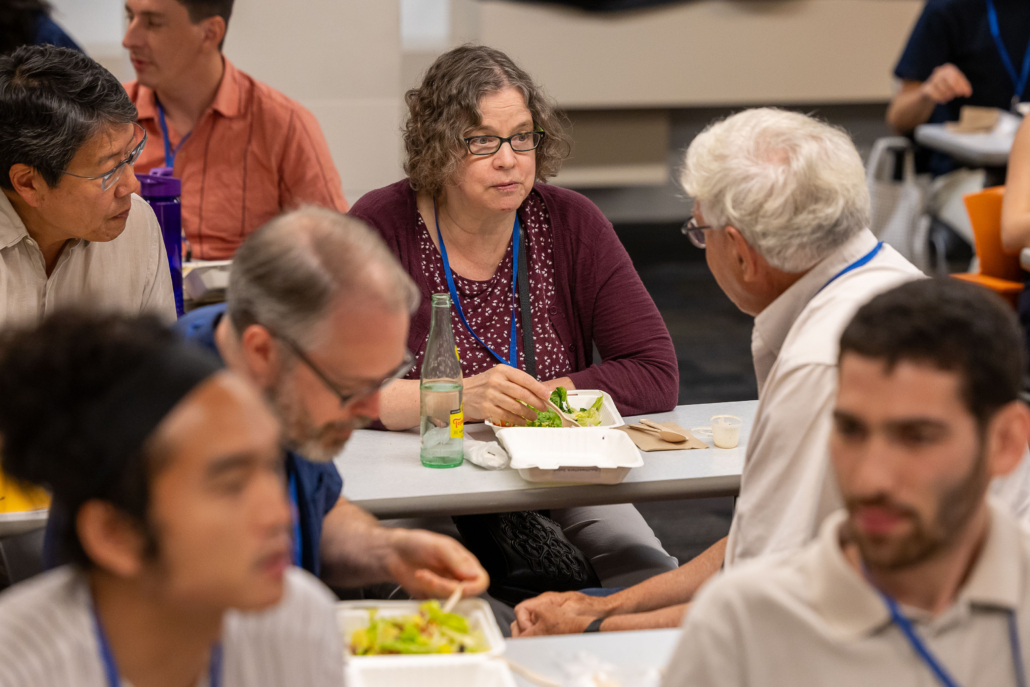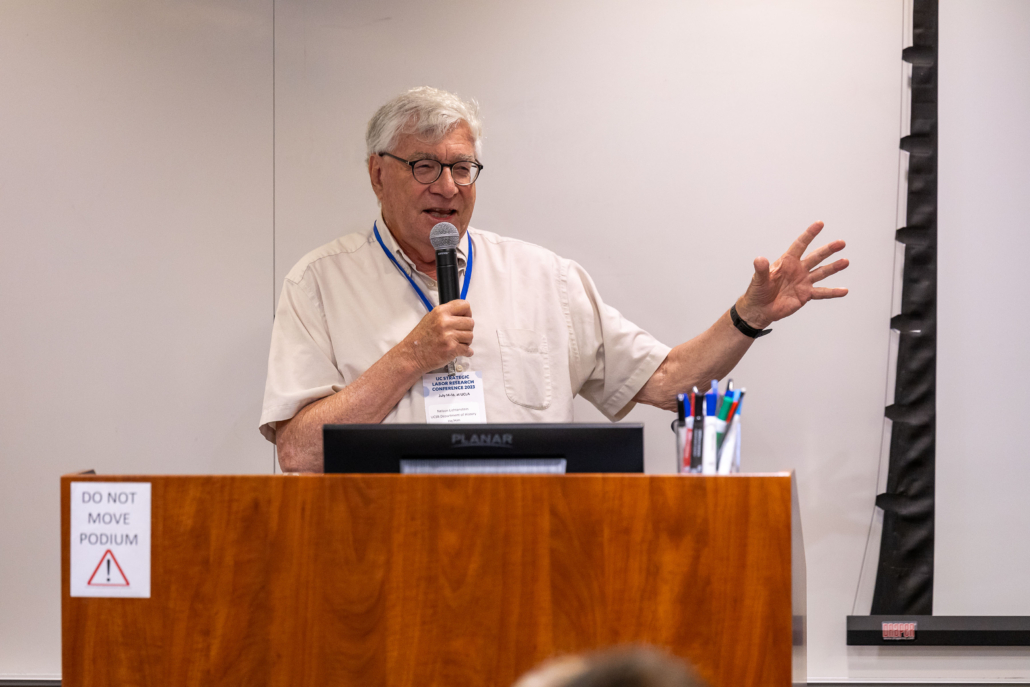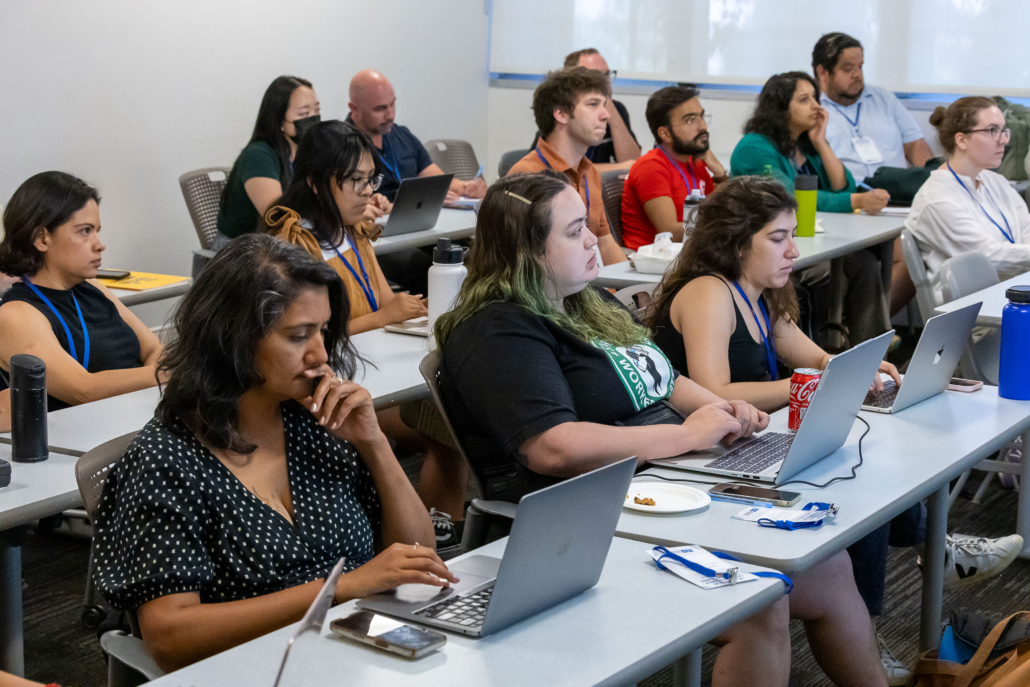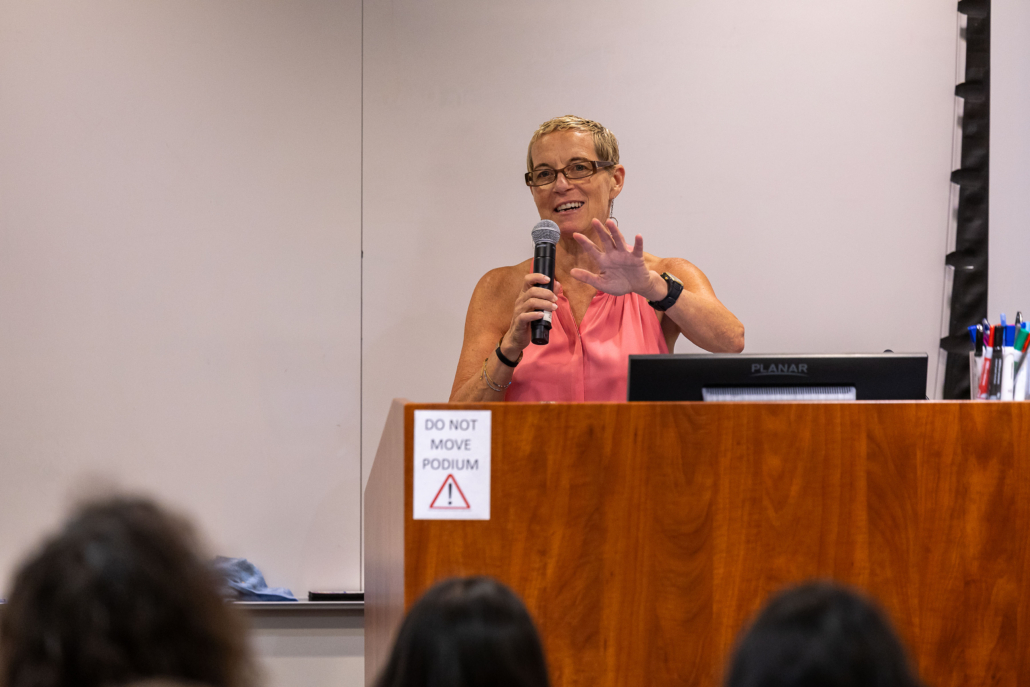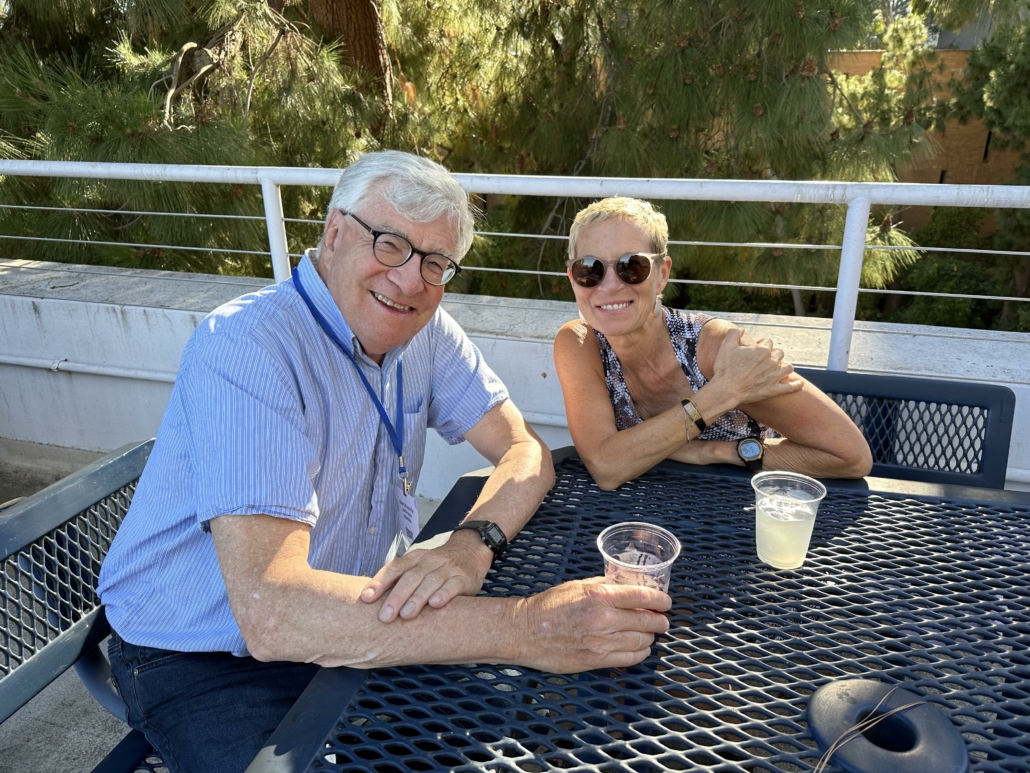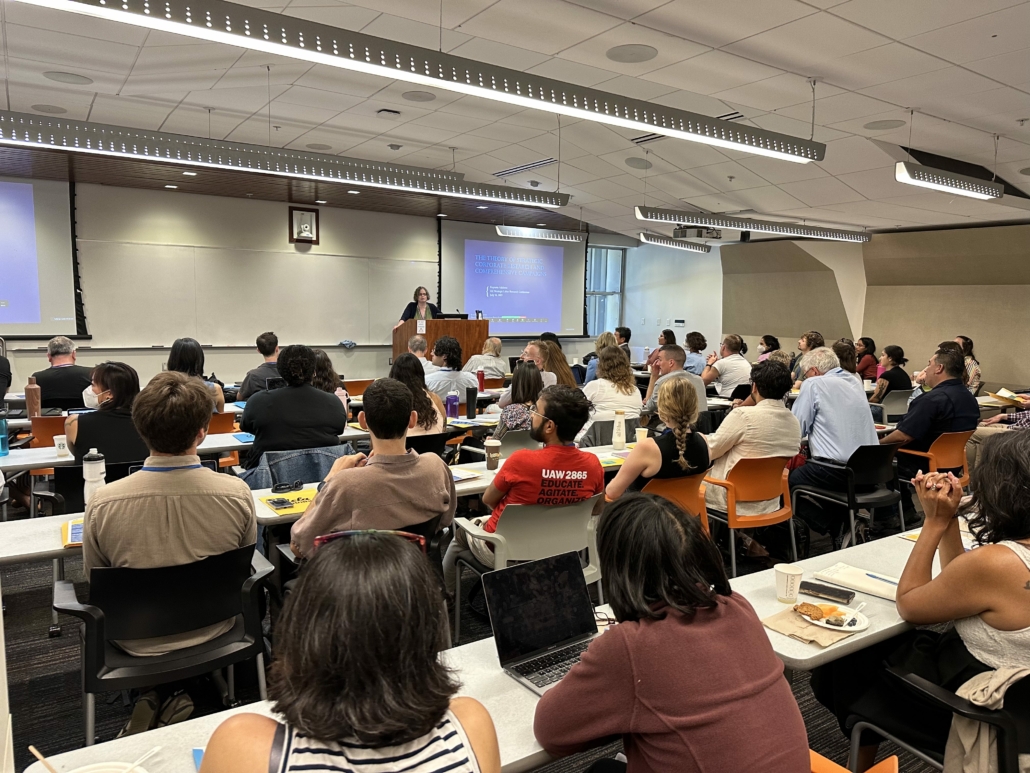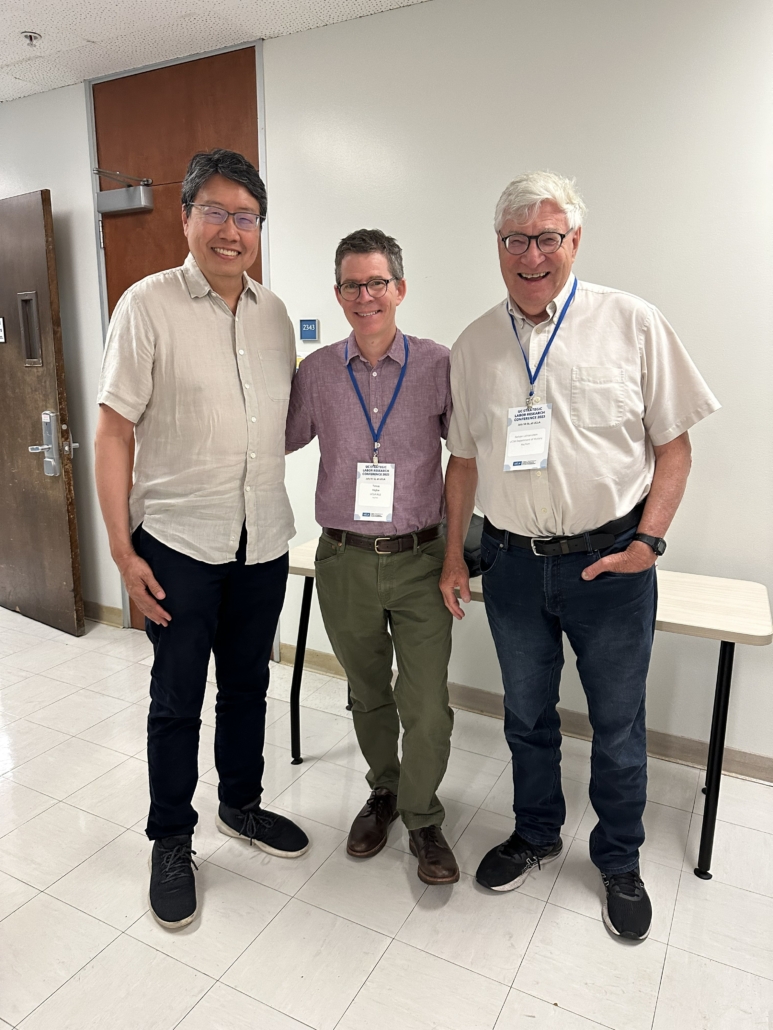UCLA labor studies hosts inaugural UC Strategic Labor Research Conference
The highly popular event represents the first conference of its type offered on the West Coast
By Citlalli Chávez-Nava and Lesly Ayala | July 24, 2023
Earlier this month, the inaugural UC Strategic Labor Research Conference witnessed an impressive turnout, attracting over 160 new and seasoned labor researchers for this unique educational opportunity. The event was organized by UCLA’s labor studies interdepartmental program and was offered free of charge to participants.
The conference imparted applied skills in strategic labor research over the course of three days through workshops that explored supply chains and key actors in the production process, Los Angeles labor policy strategies and the fundamentals of strategic comprehensive campaign planning, among other topics.
Drawing inspiration from Cornell University’s Strategic Corporate Research Summer School, which trains union activists to analyze corporate ownership, finance, organization and power, the UC Strategic Labor Research Conference was the first conference of its type offered on the West Coast and resulted in over 250 applicants leaving 100 researchers on a waitlist. Given the wide applicant pool, the event attracted local, national and also international participants.
“The popularity of the conference demonstrated the huge need the California labor movement has for these types of workshops,” said Chris Zepeda-Millán, UCLA labor studies chair and professor of public policy and Chicana/o and Central American studies who led the conference. “As a public-serving university, I’m glad we could help fill this vital gap.”
Strategic labor research saw its start in the early 20th century as industries began to embrace globalization and unions realized it was important to understand strategies to fight for worker rights more effectively. This research attempts to understand the power structures in industries and identify leverage points to develop organizing strategies. As a result, many unions across Los Angeles and the United States employ research teams that analyze and develop tactics to target employers more effectively.
“If you’re going after an employer, it’s important to know where the company is generating most of its profit,” explained Zepeda-Millán. “For instance, if you’re targeting a general merchandise retailer known for their apparel, a research team might find that the majority of its profits actually come from selling televisions. This could inform a strategy that focuses on boycotting its TVs instead of their clothing line.”
Justin McBride, a former labor campaign manager and current doctoral candidate of urban planning at UCLA who also helped with conference coordination, thinks the convening created a much-needed collaborative environment.
“The event was significant because many of the sharpest strategists in California’s labor movement came together to talk about issues facing our members and share potential solutions,” he said. “Research can be isolating work and formal spaces for sharing ideas and strategies between organizations are rare. Many of us train on the job.”
Brian Dane, a union representative at AFSCME Council 57 in Northern California, also highlighted the importance of connecting with fellow researchers in person.
“We learned concrete ways to strengthen the movement but it also revitalized me to hear from people all over the country about what they have been doing and why it is so important to them,” he said.
The conference included speeches and panel discussions featuring key figures in the labor movement. The Director of Labor Education Research and a Senior Lecturer at Cornell University’s School of Industrial and Labor Relations, Kate Bronfenbrenner, who leads Cornell’s Strategic Corporate Research Summer School, flew in from the East Coast to support the event and delivered a keynote address on the opening day of the conference.
“Young people, for the first time, support unions more than anybody else,” she said. “These are exciting times but they are also daunting times and this is a critical time for people like you to really make a difference.”
Jane McAlevey, a renowned organizer and senior policy fellow at UC Berkeley’s Institute for Research on Labor and Employment, talked about how research-based “power analyses” and “whole worker organizing” are key to successful organizing and bargaining campaigns.
On the final day of the conference, a panel featuring Nelson Lichtenstein (history professor at the University of California, Santa Barbara), Francis Engler (research and political director at UNITE HERE Local 11), Julie Farb (director of growth strategies for Economic Power and Growth Hub at the AFL-CIO) and Kate Bronfenbrenner (Cornell) considered the future of strategic research in the labor movement.
Zepeda-Míllan is committed to continue growing the focus on strategic labor research established in partnership with new and existing labor centers across the state.
“The fact that we’ve been asked to make this an annual event and open it up to researchers from across the country and other social movements tells me that we’ve definitely identified a key need for our local, state and national labor movements,” he said. “Our goal is to provide these types of workshops not only at an annual conference, but also throughout the year.”

